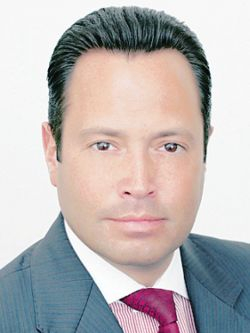
Alex Skoblo
Partner and Head of CIS Hotel & Hospitality Practice Group
Dentons
The owner of a property who decides to operate it as a hotel has to make a fundamental business decision early on that can either make or break his burgeoning business: operate under a well-known brand or run the venue as an independently managed property. The advantages of using a branded hotel are well known: the name will attract customers because of reputation and loyalty programs, and the owner will benefit from the marketing clout and expertise of the brand — often a multinational corporation with decades of experience in the hotel industry.
Should it elect to go with the branded hotel model, the owner will then have to negotiate the legal framework for its relationship with the hotel brand. The latter will offer him basically two choices, if any: go the way of a "hotel management agreement" or make the relationship that of a franchisor-franchisee. Among these two options, what are the current perspectives for hotel franchising in Russia? The development of the franchise model in Russia for operating hotels will depend on several variables.
The penetration of hotel franchising will be determined in part by which international players develop the franchise model in the country most efficiently and aggressively. Indeed, the major hotel groups have different approaches with respect to the use of a franchising vs. management agreement model. In order to alleviate the burden of the capital investments required for owned properties and to better manage the associated risk, Accor, for example, is progressively gravitating towards a franchising model. A majority of the properties for InterContinental are franchised, less than 20 percent are managed and even less are owned: around 1 percent. Hyatt, on the other hand, is one of the brands with a high number of properties owned: around 25 percent. Irrespective of the history, however, the global trend today is towards the franchise model; so we can expect that, in the medium term, this will also spread to Russia.

Andras Haragovitch
Associate
Dentons
One of the impediments to the development of hotel franchising in Russia has been the legal framework for franchises in Russia and, in particular, the provisions of the Civil Code of the Russian Federation that regulate franchising. Until 2011, franchising legislation was very favorable to the franchisee. For example, in cases where the franchisee duly performed its obligations during the term of the franchise agreement, it had a statutory right of first refusal to renew the agreement for a new term under the same terms and conditions. The franchisor's only way out was to abstain from entering into a franchise agreement with another party for the same territory for three years.
Signed into law on July 18, 2001, Federal Law No. 216-FZ "On Amendments to Part II of the Civil Code of the Russian Federation" attempted to better balance the rights and obligations of the parties to a franchise agreement. Although a step forward, Russian franchising legislation remains cumbersome. The statutory right of first refusal of the franchisee remains, but the terms and conditions of the renewed agreement may be renegotiated by the parties. In addition, should the franchisor refuse to renew the agreement, the period during which it is forbidden to enter into a similar franchise agreement was reduced from three years to one year.
Beyond the legal complications, none of which are insurmountable to well-advised parties at the negotiation table, there remain the usual risks related to a business model for running hotels as franchised properties. In particular, from the point of view of the brand/franchisor, there is reduced control and supervision over operations of the hotel than it would otherwise have if the agreement had been concluded as a management agreement. Indeed, one of the key differences between the franchising and the management model is that the brand does much less daily supervision of the operations of the hotel, if at all. The day to day supervision exercised when being a hotel operator is replaced with, among other things, the recurring audit rights a franchisor has over the operations of the hotel.
These risks, however, do not deter international brands from entering into hotel franchising agreements in Russia, where Hilton for example has opened 4 franchised hotels. According to Vladimir Ilichev, Head of Development, "while the risks in Russia are higher than mature markets, we know how to effectively manage them." As for Accor, the brand will be signing their first franchise project this year and are looking to further expand their franchise projects in Russia, according to its Managing Director, Alexis Delaroff.
In sum, it is likely that the franchising model will continue to expand in Russia and will be a useful item in the toolkit for owners and international brands when structuring their business relationships.
A Message from The Moscow Times:
Dear readers,
We are facing unprecedented challenges. Russia's Prosecutor General's Office has designated The Moscow Times as an "undesirable" organization, criminalizing our work and putting our staff at risk of prosecution. This follows our earlier unjust labeling as a "foreign agent."
These actions are direct attempts to silence independent journalism in Russia. The authorities claim our work "discredits the decisions of the Russian leadership." We see things differently: we strive to provide accurate, unbiased reporting on Russia.
We, the journalists of The Moscow Times, refuse to be silenced. But to continue our work, we need your help.
Your support, no matter how small, makes a world of difference. If you can, please support us monthly starting from just $2. It's quick to set up, and every contribution makes a significant impact.
By supporting The Moscow Times, you're defending open, independent journalism in the face of repression. Thank you for standing with us.
Remind me later.





